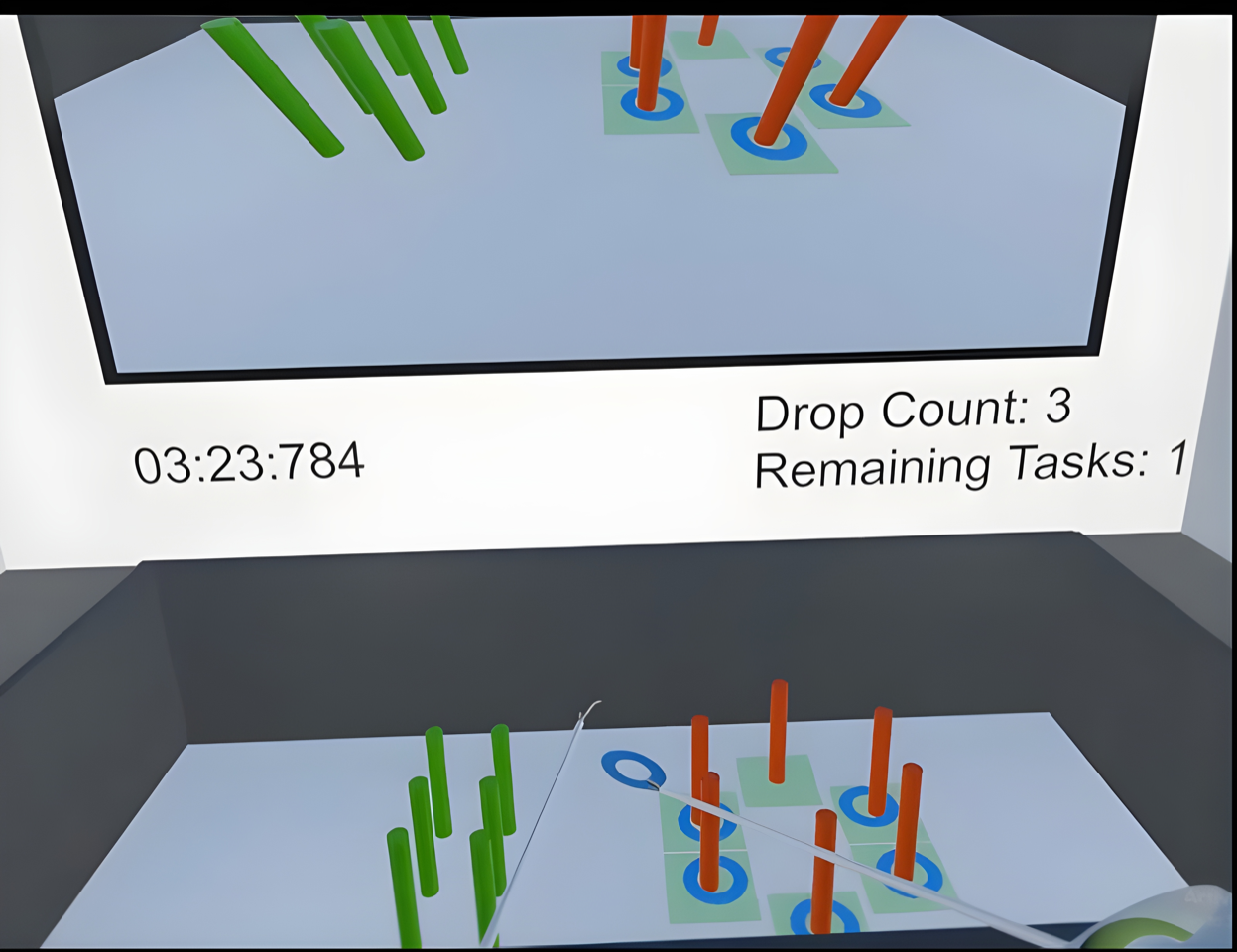M.S. Candidate: Ege Yosunkaya
Program: Multimedia Informatics
Date: 01.09.2023 / 10:00
Place: A-212
Abstract: Laparoscopic surgical training has established methods with physical training tools that aim to improve the psychomotor skills of surgeons. Virtual reality is a technology that can greatly improve the effectiveness of training while increasing accessibility, especially by removing the physical devices needed. In this study, we developed a virtual reality adaptation of an established method of laparoscopy training, the box trainer. We implemented the simulation in two phases. We used the feedback from the three surgeons and questionnaire responses from 28 participants to develop the second version of the simulation. With a second group of 30 participants, we validated the second version with the same set of questionnaires. The responses to the questionnaires showed that the version with tutorials, haptic feedback, and assisted grabbing physics is more usable and better accepted by the participants. Additionally, we recorded the motion of the graspers in the second version and concluded that the performance can be distinguished by the kinematic characteristics of the motion, similar to its physical counterpart. Lastly, we examined the physiological response with electrocardiogram (ECG) recordings with 15 people from the second group. We found that, during the tasks, heart rate increased, and heart rate variability (HRV) decreased compared to the rest state. We approached the development of the simulation from a multimodal standpoint, focusing on the user’s self-reported experience, kinematic behavior of the hands, and physiological response. These results suggest that VR is a promising technology for laparoscopic surgical training. The VR adaptation of the box trainer provides a realistic and immersive experience that can help surgeons develop the psychomotor skills necessary for laparoscopic surgery.
